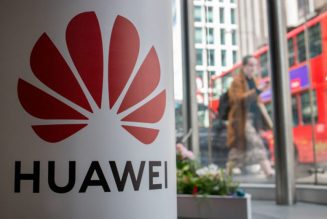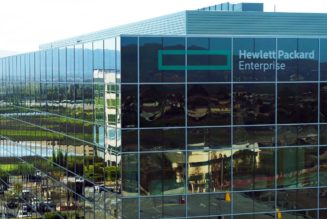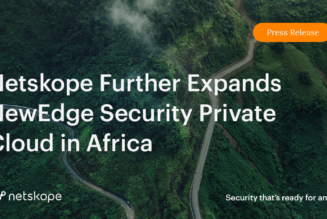Commvault is a recognised global enterprise leader in Intelligent Data Services across on-premises, cloud and SaaS (software-as-a-service) environments. The firm specialises in the management of data across these platforms.
ITNA’s Luis Monzon had the opportunity to speak to Gerhard Fourie, recently appointed as Commvault Africa’s Channel Lead. Fourie joined Commvault in June 2016 as Channel Manager for South Africa, and says of his new position, “I am excited to concentrate on optimising our distribution landscape and increasing our resource coverage throughout the entire expanded region.”
“This is instrumental in driving sales across Africa through our 100% channel focus.”
While overseeing the entire Africa region and the Indian Ocean islands, Fourie now also ensures that Commvault creates top of mind awareness within the entire region about the power of Commvault’s data management platforms.
Luis picked Gerhard’s brain on all things data management in Africa – what it is, why it is important, and what challenges does it face in the continent as we head into a digitally transformed future.
Here’s what transpired:
- What is data management and why is it necessary?
Next to gold and oil, the most traded currency in the world today is data. And the most important asset, other than the actual human beings a company has, is data and that counts towards you as a company and also counts towards you as an individual.
If you look at the simple example of your smartphone, say an iPhone. In it, you have photos of your grandmother or some sentimental WhatsApp messages, or you’ve got some documents from Word or some emails that you’ve exchanged on your device – most of that data, especially with Apple, gets backed up by the iCloud.
So if you were to buy a new device, you could do the migration and all your data will be on that new device. The biggest thing around data management is what happens if that device is stolen or is lost? And what happens with the data that’s on that device?
In this sense, data management is about the ability to make sure that you’ve got the data in the right space. What if the data or the device that the data is stored in is lost or stolen, you can actually retrieve the data?
The next part to data management is also making sure that the data that is really important to you is protected to the utmost exponent in the sense that it’s encrypted, you’ve got copies of it and you’ll be able to retrieve any one of those photos of your grandmother should you lose your phone.
Data management is about managing those backup copies and managing that space. It is also making sure that there are no duplicates in the data.
So it’s about really trimming down the fat and making sure you’ve got a nice and lean data platform that can show you the actual value of your data. By knowing what data you’ve got, where the data is, who has access to it, who had access to it, and who shared your data with whomever. It’s not just about data that’s in the cloud, it’s not just about data that sits on a device. It’s not just about data sitting in a server room. It’s about data sitting everywhere.
In terms of Commvault, data management is about how we then package data and present it back to corporates or to a customer so that they can actually understand what data they’ve got – the potentials and the risks associated with that data.
With this information, I can report, again, who has access to the data, where does the data reside, who’s seeing the data, and who is sharing the data. I can also report if the data was lost or stolen.
For example, during an actual ransomware attack, or even just a data breach, I can accurately report that the following data sets have been stolen. I can let the relevant people know who and what is affected by that data theft. And I can take the necessary steps to ensure that it doesn’t happen again. Because at the moment, if you don’t know what data you’ve got, you won’t know what’s stolen.
- In terms of Africa, as a continent, and as a centre for data, what does data management mean? What lies ahead?
I think we’re still at the cusp, sort of a beginning, of data management in Africa.
And I think this is where the exciting part comes in. There are so many green fields and opportunities in Africa. And what I mean by ‘green fields’ is countries and industries that haven’t been predisposed to the old way of doing things around data management and protecting your data.
So African customers are a lot more open to new strategies and new approaches to data management.
And for me, I think that’s the exciting part. You know, we are still very much in the infancy of seeing data bloom in Africa. We’ve seen a lot of the larger banks in the relevant countries starting to move and potentially move away from their requirements of having data centres locally within their geographic borders. We are seeing more companies being open to stuff like Azure, and being open to stuff like AWS.
COVID has also had a big influence on the way I see a lot of the African countries are actually shaping their views. During the early points in the pandemic, we all had the experience that we couldn’t get hardware and we struggled to get people into data centres. COVID really made it difficult for companies to continue doing business.
And because of that, we’re now starting to see an uptake in service providers who are building out services for customers, hosting their data in data centres on private cloud platforms.
We’re also starting to see the firms really thinking about what the future looks like.
Asking if they want to be owning the infrastructure and owning the actual skill associated with it in the future. More and more the customers have actually been telling me, “No, I actually want a partner to own the entire process, I just want to have an SLA (service level agreement) around my data with my specific service provider, and that’s it.”
I’m seeing a lot more alignment around the legislation, as well. Especially if we look at stats from the FBI, etc. In terms of countries, the hardest hit by cybercrime – I think the top 10 or top 12 countries are all African.
I think South Africa is currently 3rd. If you just take that into account, it clearly tells you that the way Africa has managed data in the past presented too many spaces for cybercriminals to get access to your data. So that’s forcing the entire continent to start saying, “what we’ve been doing is old, we need to revise it, and we need to listen and look at the new approaches. There are newer, easier, and better ways of doing things.”
I think COVID has also helped accelerate that motion of CIOs saying, “I can’t get a server into the country for my new workload, what is it going to cost me to host this in a data centre or host it on Azure, or AWS.” And nine out of 10 times this is the right call to make in moving production and important workloads unto always-on environments. In those environments, customers have access to their data, they have access to the systems, and they can leave the sort of non-essential stuff on-prem.
So it’s been an active ride for Commvault. We launched Metallic, which is a software as a service platform on 26 January this year in South Africa.
And with it we’re seeing customers that at one point told us that they want to own the infrastructure and the skills, just all of the sudden decide that it’s better to outsource to us. They say “I just need to know I’ve got an SLR, and I need to know I can get my data back”, and that’s it.
And I think that also helps companies focus their attention on areas where they need to really focus on to help the business actually make money and survive through this pandemic we’re going through.
So the way you have described Africa in the sense of data and cybersecurity is that the continent is still very nascent in these kinds of technologies, and obviously, with growth comes growing pains.
- What kind of challenges can we expect for Africa in the adoption of data management and what can companies like Commvault do to help African firms succeed through these challenges?
I think the first challenge that we have in Africa is education.
And it’s not from lack of trying from corporates. I think also what has happened in the past is, is that international vendors try and force their message onto a region. We’re not America, we’re not Europe, and we’re not Asia. Africa is Africa, and things happen in Africa time.
Africa has a different rhythm. So I think it is not just about education to a customer, but also education to a vendor. If vendors are going to help a customer be successful in the region, they need to understand the region themselves. They need to understand that there is a different rhythm.
From Commvault’s point of view, from a vendor’s point of view, we’re trying to spend a lot of time with our customers learning about what their driving forces are, so that we can start turning that and articulate it back into education for them.
We do this by showing customers how easy it actually is to get access to platforms like a software as a service platform, or by making sure they have a proper ransomware protection strategy and recovery strategy in place.
Another key barrier for entry to technology is still the cost of data in Africa.
I mean, we are still horrendously expensive when it comes to data costs. So getting stuff installed into the cloud, for instance, and then potentially bringing stuff back, when we start talking about egress, it’s just mind-boggling that we are still paying those sort of data charges.
So understanding how you can bundle technology that is a software as a service platform but also potentially offers a customer scenario where we can help them get their data in, so there’s a cost associated with that, but when they need to bring their data back that there are no egress costs associated. So I believe balancing the scales of taking and giving will assist us in accessing the African markets a lot quicker.
Another key challenge is still access to funding. From a corporate point of view, the enterprise guys throughout Africa, whether they are banks or oil and gas companies or telcos, typically have the money to spend and improve the infrastructure, and make sure that they’ve got the best possible connectivity and the best possible storage, etc, in place.
But there’s still too many customers or too many companies out there that don’t have access to that sort of funding. So you do find that customers will often sweat their kits a lot longer because it’s part of their actual budgets.
So it’s about getting to those customers and changing their mindsets. Telling them, “stop wanting to own or forecast what you need for the next five years – buy what you need now, and grow into what you need for the future.”
Another challenge is skills – IT skills in the market. A few years ago, just before COVID struck, as a vendor, we took an initiative to really reach out to the younger generation in the region in terms of getting them interested in and understanding data management.
But at the end of the day, it’s still a market where there is a phenomenal skills shortage.
Customers need to change their views. Vendors need to change their approach, and we are really trying that at the moment. I think you can see that from all the mainline vendors in the market, Microsoft has changed. AWS has changed. Dell, EMC, HPE – everybody is sort of changing their messaging so that what you see coming to Africa is a completely edited version of what’s going out in the market.
And I think that’s key. Political instability is another key challenge. What doesn’t help in countries like South Africa is stuff like Eskom, because that increases the cost of lending.
Things like the fighting in Mozambique minutes from the borders of South Africa. It’s the Boko Haram stuff in Nigeria right now. There’s still so much animosity in Africa. When you start talking about that funding element, there are so many corporates out in tier one and tier two countries that are saying “you know what, I love Tanzania, or I love Nigeria, but I’m not convinced I’m going get my money back if I invest and in five years time I have to pull out.”
So it’s really about finding a way we can actually reduce those risks to potential investors.
This continent has a lot of potential. There’s a lot of intelligent people on this continent. And a lot of guys have brilliant ideas. But we’re not up there, because we just don’t have the relevant funding.
By Luis Monzon
Follow Luis Monzon on Twitter
Follow IT News Africa on Twitter










